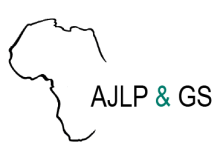Resource information
Context and backgroundColonial legacy and the continuous implementation of neoliberal policies have led to the creation of institutional pluralism in the planning of customary land in peri-urban areas in Ghana. During land commoditisation, peri-urban customary land planning regularly involves physical planning authorities, traditional authorities, and private surveyors. The community members are rarely involved in the planning of their communities, and the planning often leads to the eviction of the community members from their ancestral land. The evictions usually lead to conflicts between traditional authorities and community members, and in other cases, the dispossession precipitates multiple sales of land by different people. As a result of the change in the institutional planning structure, the indigenous belief systems used to regulate land relations are broken down. The researcher, therefore, investigated the urban planning, institutional pluralism, and indigenous belief systems in Aburaso and Kromoase in peri-urban Kumasi, Ghana.Goal and Objectives:The study examines how the introduction of urban planning practices in peri-urban Ghana creates institutional pluralism, resulting in the breakdown of indigenous belief systems during land commoditisation. In this era of uplifting the rich cultural heritage of African communities, this study aimed to contribute to the subtheme on land and spirituality in the African socio-cultural context of the conference. The study recommends that to maintain land and spirituality in the African socio-cultural context, urban planning practices should be embedded in the indigenous land tenure systems, and the planning should involve community members. Methodology:This study deployed the New Institutional Economics approach from the perspective of Social Anthropology to examine how the introduction of urban planning changed the institutional planning structure in peri-urban Ghana, leading to erosion of the indigenous belief systems on land during land commoditisation. The study was conducted in Aburaso and Kromoase in peri-urban Kumasi between 2018 and 2020. The researcher adopted a qualitative research method and data was collected through in-depth interviews from 2 Regional Lands Commission Officials, 2 Physical Planning Department Officials, 2 traditional authorities, 5 clans heads, and 33 household heads in both communities.Results:The findings from the study showed that sacred days were no more observed in the communities. In addition, customs regulating access to streams were broken down. Before the planning of the communities, goats were prohibited in the communities. However, presently, people sent goats to the communities. The study, therefore, argues that the change in planning institutions in peri-urban Ghana evolving from the introduction of urban planning during land commoditisation leads to the breakdown of indigenous belief systems regulating land. People do not recognise sacred days and other customs that regulate land relations again.


